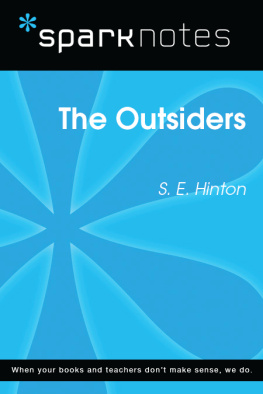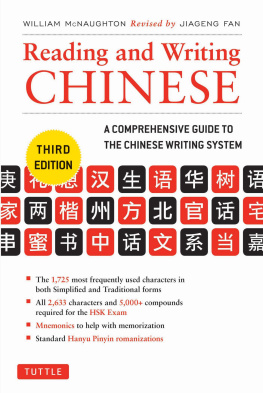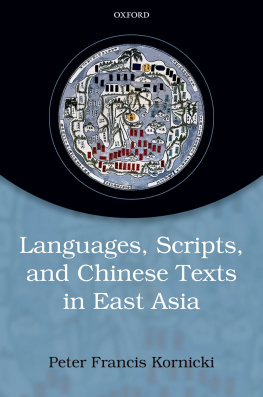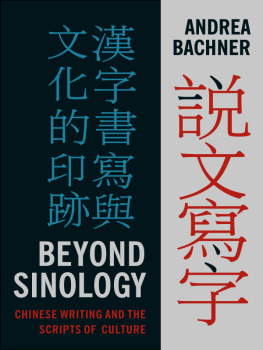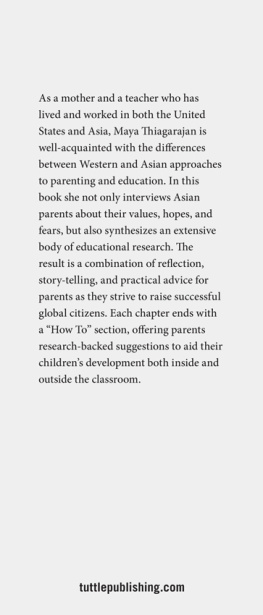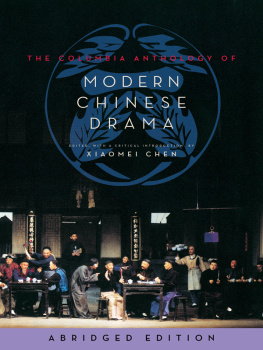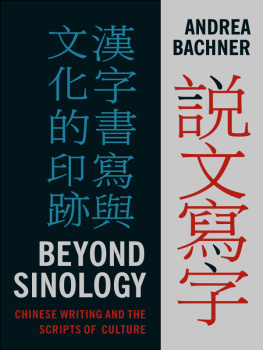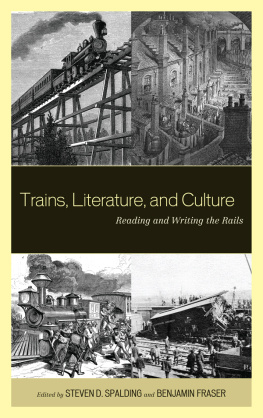Jen - Tiger Writing Art, Culture, and the Interdependent Self
Here you can read online Jen - Tiger Writing Art, Culture, and the Interdependent Self full text of the book (entire story) in english for free. Download pdf and epub, get meaning, cover and reviews about this ebook. year: 2013, genre: Home and family. Description of the work, (preface) as well as reviews are available. Best literature library LitArk.com created for fans of good reading and offers a wide selection of genres:
Romance novel
Science fiction
Adventure
Detective
Science
History
Home and family
Prose
Art
Politics
Computer
Non-fiction
Religion
Business
Children
Humor
Choose a favorite category and find really read worthwhile books. Enjoy immersion in the world of imagination, feel the emotions of the characters or learn something new for yourself, make an fascinating discovery.

- Book:Tiger Writing Art, Culture, and the Interdependent Self
- Author:
- Genre:
- Year:2013
- Rating:4 / 5
- Favourites:Add to favourites
- Your mark:
- 80
- 1
- 2
- 3
- 4
- 5
Tiger Writing Art, Culture, and the Interdependent Self: summary, description and annotation
We offer to read an annotation, description, summary or preface (depends on what the author of the book "Tiger Writing Art, Culture, and the Interdependent Self" wrote himself). If you haven't found the necessary information about the book — write in the comments, we will try to find it.
Jen: author's other books
Who wrote Tiger Writing Art, Culture, and the Interdependent Self? Find out the surname, the name of the author of the book and a list of all author's works by series.
Tiger Writing Art, Culture, and the Interdependent Self — read online for free the complete book (whole text) full work
Below is the text of the book, divided by pages. System saving the place of the last page read, allows you to conveniently read the book "Tiger Writing Art, Culture, and the Interdependent Self" online for free, without having to search again every time where you left off. Put a bookmark, and you can go to the page where you finished reading at any time.
Font size:
Interval:
Bookmark:

TIGER WRITING
The W ILLIAM E. M ASSEY S R . L ECTURES in the
H ISTORY of A MERICAN C IVILIZATION
2012
GISH JEN
TIGER WRITING
ART, CULTURE, AND
THE INTERDEPENDENT SELF
Harvard University Press
Cambridge, Massachusetts
London, England
2013
Copyright 2013 by Gish Jen
all rights reserved.
Printed in the United States of America
Grateful acknowledgment is made for permission to reprint an excerpt from the following copyrighted song: Helplessness Blues, words and music by Robin Pecknold. 2011 Foxes Fellowship (ASCAP).
Library of Congress Cataloging-in-Publication Data Jen, Gish.
Tiger Writing : Art, Culture, and the Interdependent Self / Gish Jen.
pages cm.(The William E. Massey Sr. Lectures in the History of American Civilization)
Includes bibliographical references and index.
ISBN 978-0-9891442-0-9
1. Jen, Gish. 2. Novelists, AmericanBiography.
3. Narration (Rhetoric). 4. FictionAuthorship.
5. Self-actualization (Psychology). I. Title.
PS3560.E474Z46 2013
813.54dc23 2012043631
[B]
For Werner Sollors
On behalf of the many he has inspired and heartened,
with respect and gratitude
A UTHOR'S N OTE
I am a novelist. I do not normally lecture. But a year and a half ago, the chairman of Harvard's Program in the History of American Civilization, John Stauffer, asked me if I would give a series of three lectures the program hosts each year called the Massey Lectures; and to this invitation, I said yes. I said yes not just because I was so honoredalthough, of course, I wasbut because I knew that despite thirty years of writing novels, stories, and articles, there was something in my bones I had not quite managed to articulatea special way in which my cultural background was profoundly at odds with the literary culture I negotiated every day.
This was especially on my mind because my father, a Chinese immigrant, had recently written a personal history I found at once completely familiar and completely baffling. Why did he write so much about his house? I wondered. Why did he not write more about himself? But also it was on my mind because, as I began to understand how to read his narrative, I saw that the self it reflected was a self I saw in the news all the time, and a self that was often greeted, as I had greeted my father's, with bafflement. What's more, it was, I was coming to realize, a part of my own self.
These lecturesthe result of that bafflementare, first and foremost, about art and culture. However, the artistic disconnect they describe between East and West sheds light, as it happens, on the everyday narratives of many corners of the worldmost recently, for example, Cairo. There, after the storming of the U.S. Embassy, many in America wondered how the protesters could be more upset about a stupid video made by a stupid man than, say, about the killing of Muslims in hate crimes. To this one Egyptian, quoted in the New York Times, answered, When you hurt someone, you are just hurting one person But when you insult a faith like that, you are insulting a whole nation that feels the pain. As if that were an explanation, some of us might grumble, even as a part of us might wonder, as I did, whether this way of putting things together wasn't related to why the Chinese, too, can be thin-skinned and nationalistic? And was this in turn related to why Asian American test scores are so high?
I am grateful beyond measure to have been given an occasion to pull together the mix of memoir, cognitive studies, literary analysis, and reflection that was involved in answering these questions, and in getting that something in my bones out onto the page. It is a something that I myself found revelatory to explore, and a something that I am now hoping will speak to people both in and beyond the literary world. I must confess that in connection with it, I also talk a bit about my own work and how I became a writer. This is because John Stauffer had hinted that an intellectual autobiography might be nice, and because several of my early readers had seconded him at high volume. I do hope I have not ruined the lectures by complying.
In any case, I thank with all my heart the many people who made this magpie work possible. My list starts with John Stauffer and the Massey Lecture committee, whose invitation still amazes me, if I think about it. Among the wonders of the live lectures were John's most able lecture summaries, as well as the graceful and extraordinarily generous introductions given by Nancy Cott, Ju Yon Kim, and Amanda Claybaugh. My thanks go, too, to the legions of behind-the-scenes elves who worked so hard to make everything run smoothly, especially Chief Elf, Arthur Patton-Hock.
I am more beholden than I can say to the many wise and perceptive readers who reviewed early drafts of this project, including Eileen Cheng-yin Chow, David Damrosch, Patricia Greenfield, Bill Marx, Allyssa McCabe, Martha Minow, Werner Sollors, and my mother, Agnes Jen. Thanks as well to the dozens of patient friends who answered with precision and provocation my innumerable questions. And let me say that the fact there is now a written version of these talks poised to enter the world is very much due to the untiring efforts of my agent, Melanie Jackson, and her assistant, Katherine Chen, as well as those of the warm and enterprising crew at Harvard University Press, including Lindsay Waters, Shan Wang, Kate Brick, Margaux Leonard, Lisa Roberts, and Greg Kornbluh.
My greatest debt of all will forever be to my father, Norman Chao-pe Jen, whose words and spirit animate much more than just these lectures; it was a supremely special pleasure to be able to deliver them in his presence. I salute, too, with love, my husband, David O'Connor, and my children, Luke and Paloma, for their lifesaving humor, patience, and support. As for the many colleagues, friends, neighbors, students, and strangers who came from far and near to attend the lecturesI will remember you all my days.
And now off with these wordssend! May they make some sense and do some good.
October 14, 2012
Cambridge, Massachusetts
I NTRODUCTION
A couple of years ago I attended an EastWest literary conference, over the course of which a young mainland Chinese writer was asked why she wrote. To this she answered, not to tell stories, or to bear witness, or to be in sacred communion with Jane Austen, but rather that she wrote because she did not like to go out, and thought that by writing novels she could make money and stay home. To which all I could think was, Oy!which was just Yiddish for what I suspect many of the Westerners in the audience were thinking.
And you know, I have been thinking about this ever sincethis question of why, when we in the West think of writers who like to stay home, we think Emily Dickinson and Art (capital A), whereas the Chinese are perfectly capable of thinking Convenience (capital C). Last winter, for example, I met a woman who is organizing a rocket to take works of art up into space. This is part of a contest whose point, she said, is for the worlds beyond our earth to receive human-made works of beauty. An amazing project, I think you'll agree, and one to which my first reaction was, A rocket! What fun! but my second, Now here is something that only an American would be doingthis person's attitude toward the value and purpose of human expression being quite different than that of the Chinese writer, and the difference between them, I would argue, representing the tip of a very large iceberg.
In inviting me to give these lectures, John Stauffer suggested that I consider an intellectual autobiographya polite way of suggesting, perhaps, that I address the one and only subject on which I am a worldwide expert, namely myself. That, though, could still mean a great many things; and so it is that I have chosen to use my own case as a way of talking about the aforementioned iceberg. I will not be able to map it definitively in our short time together. Still, via my own story, I plan to talk a bit about both culture with a small c and Culture with a large, with a particular focus on different constructions of the self. By this I mean the independent, individualistic self that dominates in the West, especially America, and the interdependent, collectivist self that dominates in the East, including China, from whence my parents emigrated in the 1940s.
Font size:
Interval:
Bookmark:
Similar books «Tiger Writing Art, Culture, and the Interdependent Self»
Look at similar books to Tiger Writing Art, Culture, and the Interdependent Self. We have selected literature similar in name and meaning in the hope of providing readers with more options to find new, interesting, not yet read works.
Discussion, reviews of the book Tiger Writing Art, Culture, and the Interdependent Self and just readers' own opinions. Leave your comments, write what you think about the work, its meaning or the main characters. Specify what exactly you liked and what you didn't like, and why you think so.



